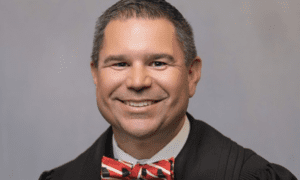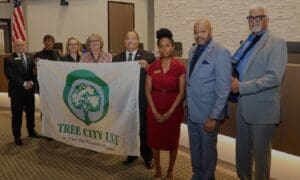Two groups of kids, two very different property tax implications.
Group A kids — more than 300 of them — attend Fayette County public schools, but their parents pay no property taxes in Fayette County to support the Fayette system.
Group B kids — more than 2,000 of them — do NOT attend Fayette County public schools and thus make no demands on the system’s resources, but their parents pay the full load of Fayette County property taxes that go to the operation of the local system.
What’s the story behind this seeming disparity?
It has long been a practice of school systems across Georgia to allow employees who live in other school districts to bring their children with them to attend a school in the district where the employee works. A concern from the past dealt with the reality that the out-of-district tax dollars did not follow those children to the Fayette County School System. These are the Group A kids.
But there is more to the story in terms of a much larger sum of money that Fayette schools do receive without having to educate a group of Fayette County children who are home-schooled or attend private schools. These are the Group B kids, and this in-county group dwarfs the Group A numbers.
The issue of Fayette school system employees living outside the county and receiving special permission to bring their child or children to work came up in 2009 and again in 2011 as the Fayette County Board of Education looked at a variety of budget-impacting areas.
The main issue in the conversation centered around the idea that the children of out-of-county employees would bring their state (QBE) dollars to Fayette schools but not the property tax dollars that make up essentially half the total revenue received by the school system.
Not surprisingly, the issue has not surfaced this year since the practice amounts to what is essentially a matter of professional courtesy extended to school system employees across the state who are employed in another system.
Information supplied by the school system showed 348 out-of-county students accompanying their parents and attending Fayette schools this time last year compared to 333 today.
A breakdown of the 333 children attending from out-of-county shows a relatively even distribution, with 157 children in elementary schools, 82 in middle schools and 94 in high schools. As for the schools attended, all schools are represented.
But there is a more to the story. It is one that never surfaces in school board meetings. It is a story of what is essentially free money for the school system.
The Citizen last year looked at the number of children living in Fayette County being home schooled or attending private schools. Spanning a period of several years, the number of children varied between approximately 1,800-2,200, and averaged approximately 2,000 each year — the student population equivalent of one large high school or three smaller elementary schools.
While 333 children are attending Fayette schools from out of county, there are an average of 2,000 children in-county whose parents are paying local property taxes that go straight to the school system without their children being educated by the system and without their system having to expend any resources to educate them.
In a year of school budget shortages, more conversations may take place eventually about Group A children versus Group B kids.












Leave a Comment
You must be logged in to post a comment.